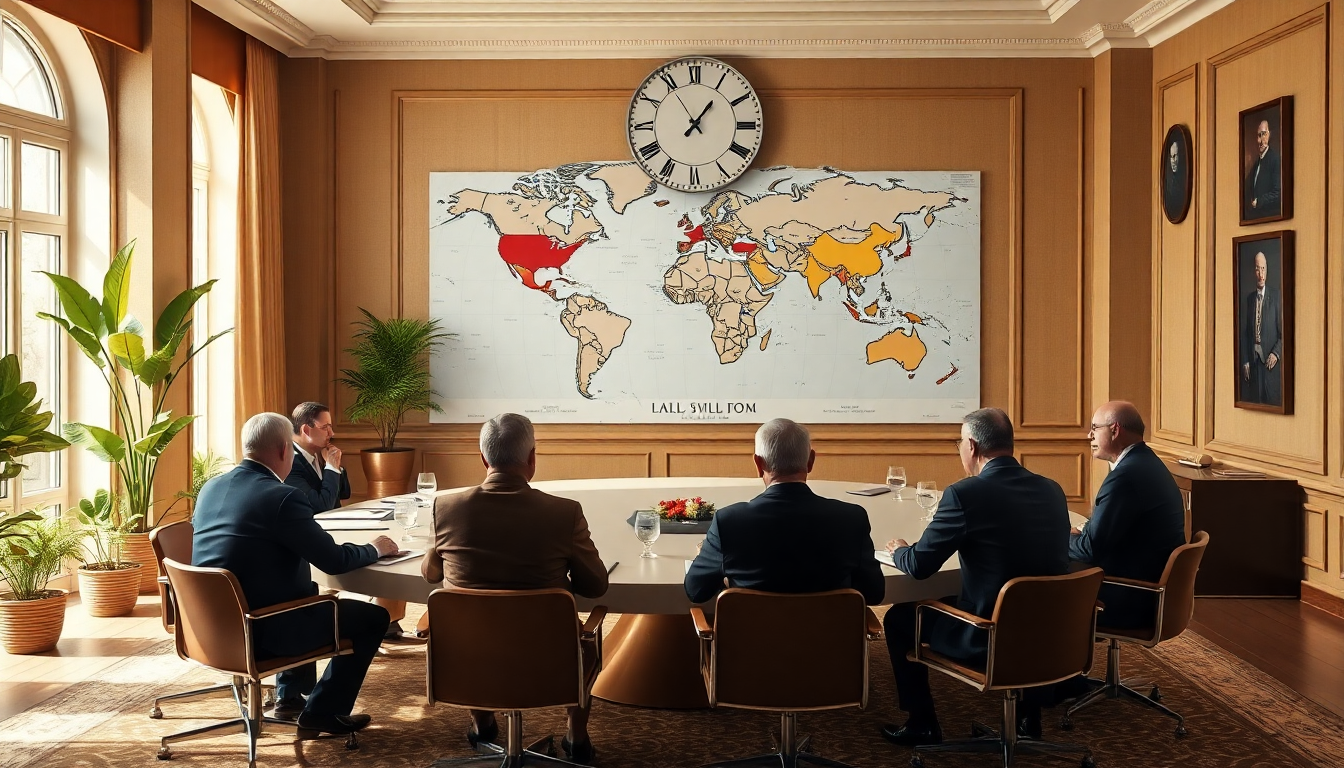Table of Contents
When it comes to international politics, the connections between leaders can really influence how countries make decisions. Have you ever thought about how personal relationships might sway diplomatic policies? This article digs into the fascinating dynamics between leaders, especially focusing on former U.S. President Donald Trump and his relationships with various world leaders, and how these interactions shaped their nations’ policies.
The interplay of personal dynamics and policy decisions
Picture this: during a NATO pre-summit news conference, President Trump compared international conflicts to kids squabbling in a playground. He suggested that sometimes a strong, fatherly approach is needed. But what does this really say about his personality and the strategies he used in international relations? While engaging, it does make you wonder about the authenticity and effectiveness of the diplomatic statements made by leaders regarding their ties with Trump.
Take Dutch Prime Minister Mark Rutte, for example. His comments on Trump showcased a fine balance of praise and political strategy. He lauded Trump’s willingness to chat with Russian President Vladimir Putin, calling it a vital step toward easing tensions. Yet, how effective are these flattery-filled statements when European leaders have largely avoided serious discussions with Putin since the Ukraine conflict began? This hesitance to engage post-invasion hints at a more complicated reality behind the friendly public exchanges.
Similarly, interactions with leaders like Italian Prime Minister Giorgia Meloni show the tactical use of compliments. During her White House visit, Meloni highlighted shared interests about Ukraine while addressing Trump’s main concerns. However, despite these goodwill gestures, concrete political outcomes, like a state visit to Rome, have remained out of reach.
The consequences of flattery versus firmness
While a bit of flattery can help ease tensions temporarily, it often falls short of creating real policy changes. Leaders such as British Prime Minister Keir Starmer and Canadian Prime Minister Mark Carney expressed admiration for Trump, but their efforts didn’t pan out as expected. Starmer’s compliments didn’t stop Trump from freezing military aid to Ukraine, which raised eyebrows among European allies. Likewise, Carney’s praise of Trump as a “transformational president” didn’t stave off trade tensions, highlighted by Trump’s threats of tariffs.
On the flip side, a more respectful yet assertive approach has proven to be more effective. Carney’s clear stance against the U.S. annexing Canada showcases how establishing boundaries can lead to healthier diplomatic relations. This firmness likely contributed to a more stable relationship after Trump’s rocky encounters with Carney’s predecessor, Justin Trudeau.
French President Macron’s diplomatic strategy, which blends friendliness with caution, underscores the importance of balance in international relations. His call for a peace that doesn’t equate to surrender resonates with many European leaders, suggesting that diplomacy grounded in mutual respect might be more effective than one based solely on personal friendships.
The role of personal interactions in shaping foreign policy
As we examine the relationships that shape international diplomacy, it becomes clear that personal interactions between leaders can significantly influence foreign policy. The intricate web of friendships and alliances, mixed with moments of flattery and firmness, illustrates the complex nature of global politics.
However, it’s crucial to realize that while personal relationships can open doors and facilitate discussions, they don’t always dictate policy outcomes. Trump’s history with various leaders serves as a compelling example of the limits of personal diplomacy. Despite moments of camaraderie and mutual admiration, the underlying political realities often steer the actions taken, showing that the relationship between personal dynamics and policy is anything but simple.
In the end, as leaders navigate the twists and turns of international relations, they must find a way to balance personal rapport with the broader interests of their nations. The dance of personal relationships, while important, must be viewed through the lens of global power dynamics and the pressing issues that define our times.


